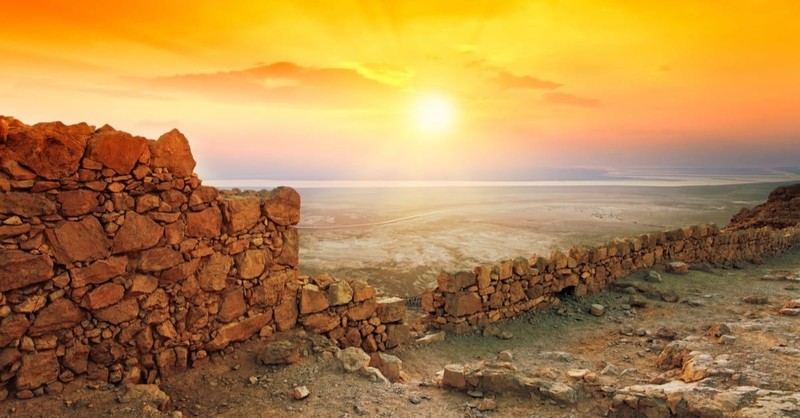Meet the “Other Kings”
- Rebecca Van Noord Contributor to Bible Study Magazine
- Published Sep 11, 2014

We remember the evil ones, like Ahab and Manasseh. We aspire to emulate the good ones, like Jehoshaphat and Josiah. We’re bewildered by those who play good king/bad king, like Solomon. But what about the other kings? Although they reigned during significant events in Israel’s and Judah’s history, most of them didn’t rule long enough to make an impression.
JUDAH
Amon
Has his two-year reign cut short when his servants assassinate him. The people of the land quell the resistance. Although he was evil, his son Josiah brings reform to Judah and repairs the temple.
2 Kings 21:19–26
Jehoahaz
Rules for three months after his father, Jehu, dies. Although his name means “Yahweh has seized,” perhaps alluding to his rightful claim to the throne, he himself is seized by Pharaoh Neco II. He is put in bonds and taken to Egypt, where he dies.
2 Kings 23:31–35
Jehoiakim
Is put on the throne by Pharaoh Neco. He also serves as a vassal of King Nebuchadnezzar II of Babylon. During his reign, the Chaldeans, Syrians, Moabites, and Ammonites are sent to Judah to destroy it—“for the sins of Manasseh” and “for the innocent blood he had shed.”
2 Kings 23:36–24:7
Jehoiachin
Serves three months as king. When Nebuchadnezzar besieges Jerusalem, he surrenders. The Babylonians plunder the temple and the land. Though taken prisoner, Jehoiachin is later freed by Evil-merodach, king of Babylon, who treats him with kindness.
2 Kings 25:27–30
Zedekiah
Is the uncle of Jehoiachin. He is made king by Nebuchadnezzar and rules for 11 years. When he rebels, Jerusalem is besieged by Babylon. He attempts to escape, but he is captured; as punishment, his eyes are plucked out after he sees his sons killed. He is then taken into Babylon as a prisoner. The people of Judah are taken into Babylonian exile.
2 Kings 24:18–25:7
ISRAEL
Elah
Was overthrown by his servant Zimri, commander of half his chariots, while “drinking himself drunk” with the chief officer of his household. His entire line is wiped out.
1 Kings 16:8–14
Zimri
Is the servant-turned-king who rules a mere seven days after assassinating Elah and all the house of Baasha. Omri, the commander of the army, is made king by the people. When Zimri realizes he is doomed, he burns down the king’s house—with himself inside.
1 Kings 16:15–20
Zechariah
Reigns for six months. He did evil and was struck down by Shallum. His death marks the end of the dynasty of Jehu.
2 Kings 15:8–12
Shallum
Reigns for one month. His act of murder begins a spiral of corruption that will lead Israel into exile, as recorded in Hosea: “All of them are hot as an oven, and they devour their rulers. All of their kings have fallen, and none of them calls upon me” (Hosea 7:6–7). He is murdered by Menahem.
2 Kings 15:13–16
Menahem
Takes out Shallum and brutally attacks the region of Tiphsach with the help of the Assyrian king. He inflicts a heavy tax to pay tribute to the king, a move that helps him retain the throne. He dies an unexpectedly peaceful death.
2 Kings 15:17–22
Pekahiah
is the son of Menahem and reigns for two years. Pekah, his captain, conspires with 50 men of the people of Gilead, striking him down in Samaria.
2 Kings 15:23–26
Pekah
Reigns when Tiglath-pileser III, king of Assyria, captures parts of Israel and carries many off into Assyria. Pekah is killed by Hoshea, the son of Elah.
2 Kings 15:27–31
Hoshea
murders Pekah and becomes the last king of Israel. He becomes a vassal of Shalmaneser V, king of Assyria. Hoshea refuses to pay tribute to the king and sends messengers to Egypt, actions that lead to suspicion and eventually, Assyrian captivity.
2 Kings 17:1–6
Biblical references are from the English Standard Version (ESV).
Article courtesy of Bible Study Magazine published by Logos Bible Software. Each issue of Bible Study Magazine provides tools and methods for Bible study as well as insights from people like John Piper, Beth Moore, Mark Driscoll, Kay Arthur, Randy Alcorn, John MacArthur, Barry Black, and more. More information is available at http://www.biblestudymagazine.com. Originally published in print: Copyright Bible Study Magazine (Mar–Apr): pgs. 48.



















